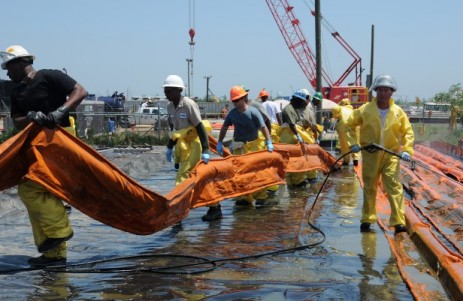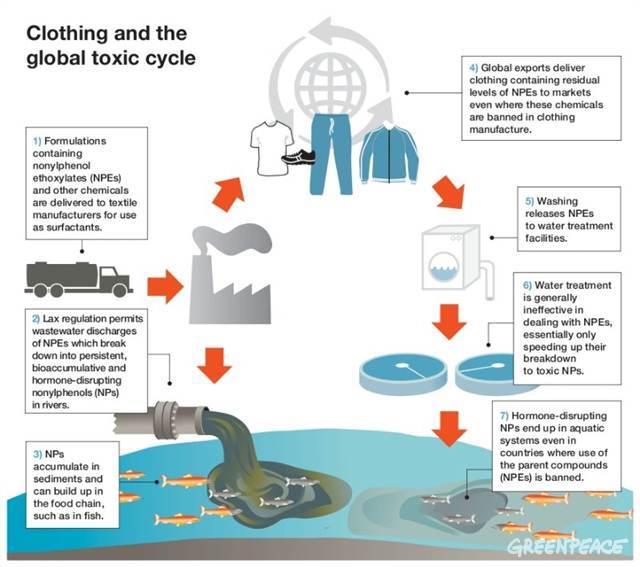Chemicals in clothing can break down in water into hormone-disrupting nonylphenol (click the infographic to embiggen). If you want to avoid dumping this crap in the waterways, you have two choices: One, never wash your clothing — which, on top of being gross, will probably not be that effective, since wastewater discharges from textile plants sluiced nonylphenol out into the waterways before your clothes even hit the store. Or two, opt for clothing from companies that don't use nonylphenol-producing chemicals (called nonylphenol ethoxylates, or NPEs). According to research from Greenpeace, though, that might be tough. Of the 15 brands they tested for NPEs, only Gap had zero positive results.
Here's how Greenpeace's analysis shook out for some of the bigger brands:
- Abercrombie & Fitch: 3 positive results, out of 3 samples tested
- Adidas: 4 out of 9
- Calvin Klein: 3 out of 4
- Converse: 5 out of 6
- Gap: 0 out of 2
- H&M: 4 out of 6
- Lacoste: 1 out of 4
- Nike: 5 out of 10
- Puma: 7 out of 9
- Ralph Lauren: 3 out of 4
Even Gap isn't necessarily off the hook:
It is also important to note that the non-detection of NPEs does not rule out NPEs being used in the production of a garment, as the finished clothing may have undergone thorough washing prior to retailing. This may have washed out all residues of NPEs from the fabric prior to sale. Such washing would only have further contributed to inputs of NPEs/NP into the environment during the manufacturing stage.
The news isn't all bad. After Greenpeace released its previous study in July, Puma and Nike both committed to zero NPEs by 2020. Greenpeace is calling on Adidas to make the same pledge.



